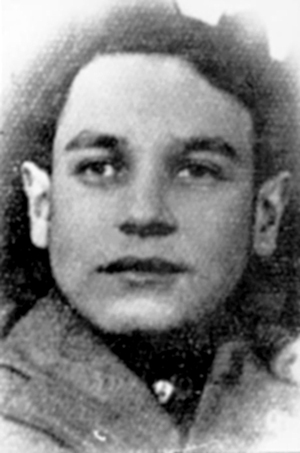[from Forverts]

אַחוץ זײַנע אָנגייענדיקע פֿאָרשאַרבעטן בנוגע דער ייִדישער לינגוויסטיק און פּאָליטישע עסייען אין שײַכות מיט דעם אופֿן ווי אַזוי מע רעדט הײַנט אַרום דעם חורבן אין מיזרח־אייראָפּע, פֿאַרענפֿטלעכט ד׳׳ר דוד כּ׳׳ץ אויף זײַן וועבזײַט אַ סך בילדער און באַשרײַבונגען פֿון אינטערעסאַנטע חפֿצים, פֿאַרבונדן מיט דער ווילנער ייִדישער קולטור־ירושה
אָט די ווילנער „אַנטיקל‟־זאַכן באַצייכנט ער ווי אַ „ווירטועלן מיני־מוזיי פֿון דער אַמאָליקער ייִדישער ווילנע.‟ די רשימה חפֿצים גיט ער אויף ענגליש אָבער די באַשרײַבונגען, צומאָל גאַנץ פּרטימדיקע אַקאַדעמישע אַנאַליזן פֿונעם אָביעקטס קולטורעלן קאָנטעקסט, שרײַבט ער דווקא אויף מאַמע־לשון
צווישן די עקספּאָנאַטן אין זײַן „ווירטועלן מיני־מוזיי‟ געפֿינט מען, למשל, אַ דיפּלאָם פֿון אַ ייִדישן לערער־סעמינאַר, אַ ייִדיש־שפּראַכיקער פּאַספּאָרט פֿון דער דײַטשישער אָקופּאַציע בעת דער ערשטער וועלט־מלחמה, צוויי בלײַענע דריידלעך וואָס מע האָט געפֿונען בײַם רעמאָנטירן אַ דירה, און אַ בריוו פֿון דער „ראַמײלעס ישיבֿה‟ בעטנדיק פֿינאַציעלע אונטערשטיצונג בײַ די אַמעריקאַנער ייִדן
Click here to read more: http://yiddish.forward.com/articles/208275/newly-found-poem-by-hirsh-glik/#ixzz599bEbzB3









